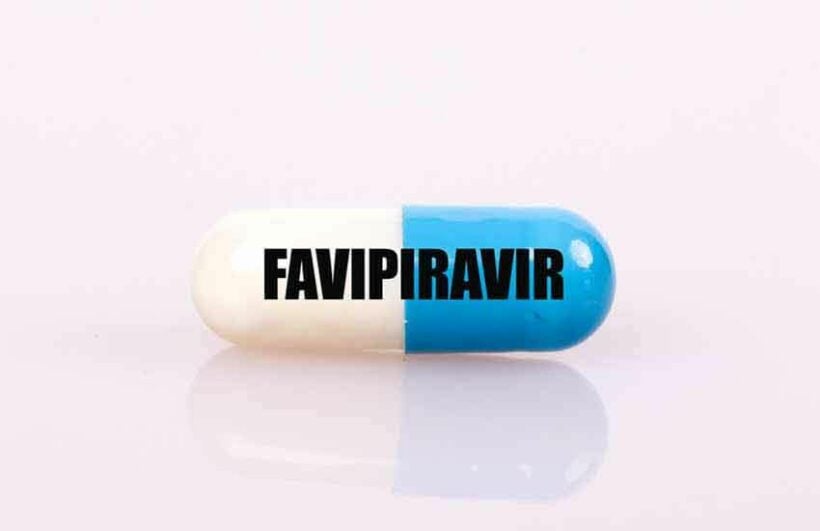Favipiravir found ineffective against Covid-19 & causes gout

The bad news for Favipiravir is that a new study found it to be ineffective in the treatment of Covid-19 infections. And more bad news, it can also cause gout. The study was released in the Clinical Infectious Diseases Journal on August 6, and Thai respiratory specialist Dr Manoon Leechawengongs of Vichaiyut Hospital posted on Facebook Friday that Thailand needs to stop using the ineffective drug.
“It’s time for Thailand to stop using Favipiravir to treat Covid-19 patients and switch to Molnupiravir, which has become cheaper. Our neighbouring countries have stopped using Favipiravir for quite a while and switched to either Molnupiravir or Paxlovid. The [Government Pharmaceutical Organisation] should stop manufacturing or importing Favipiravir and stop distributing to hospitals and pharmacies.”
The Thai Food and Drug Administration has approved Favipiravir along with Molnupiravir, Remdesivir, and Paxlovid as an antiviral treatment for medical facilities to administer to Covid-infected patients. But this study conducted over 11 months from November 2020 until October of last year showed little if any effect against coronavirus.
The study compared data from 599 Covid patients treated with the drug to data from 588 similarly infected patients who received only a placebo pill. Participants were from the US, Brazil, and Mexico. The results were published in the academic journal in August under the title “Favipiravir in patients with early mild-to-moderate Covid-19: A randomised controlled trial.”
The findings showed that Favipiravir was tolerated in infected patients, but it did not appear to be effective in curbing viral shedding, slowing or stopping the progression to a severe infection, or shortening the time to sustained clinical recovery – all the vital metrics on a drug treatment’s efficacy.
Furthermore, the Thai respiratory specialist pointed out that the antiviral drug increases the risk of patients getting gout due to increased uric acid counts. The placebo patients saw a 2.8% rise on average in uric acid while those treated with Favipiravir measured a spike of 19.9% increase on average.
SOURCE: The Nation
Latest Thailand News
Follow The Thaiger on Google News:


























